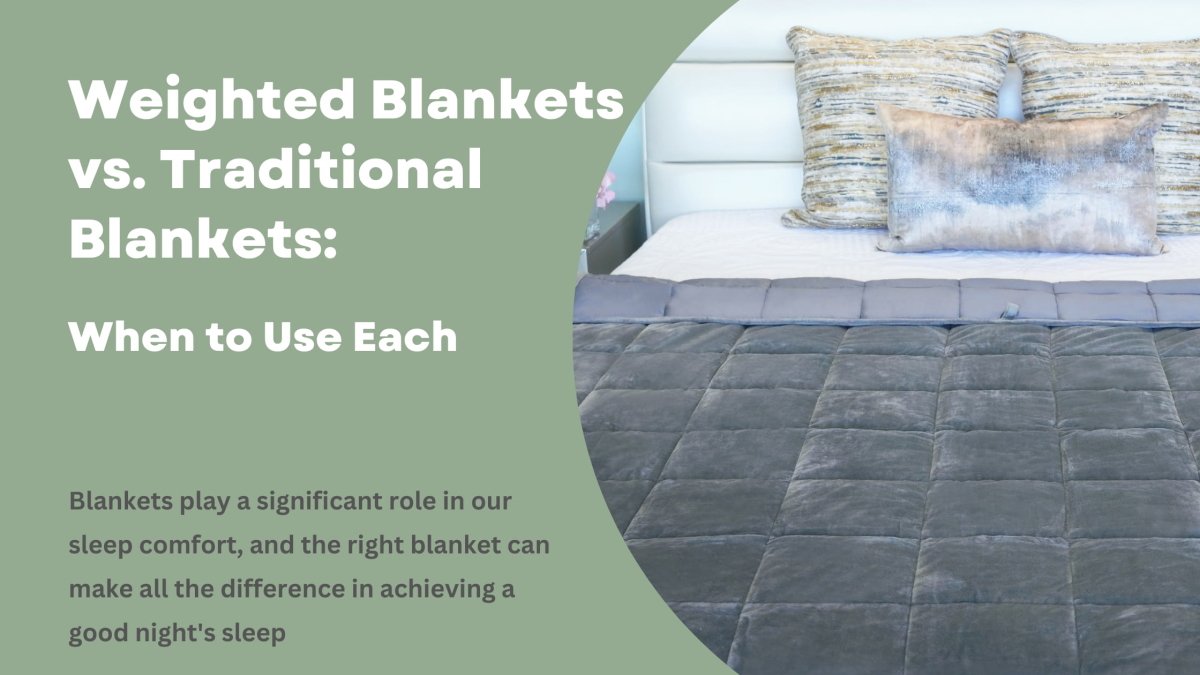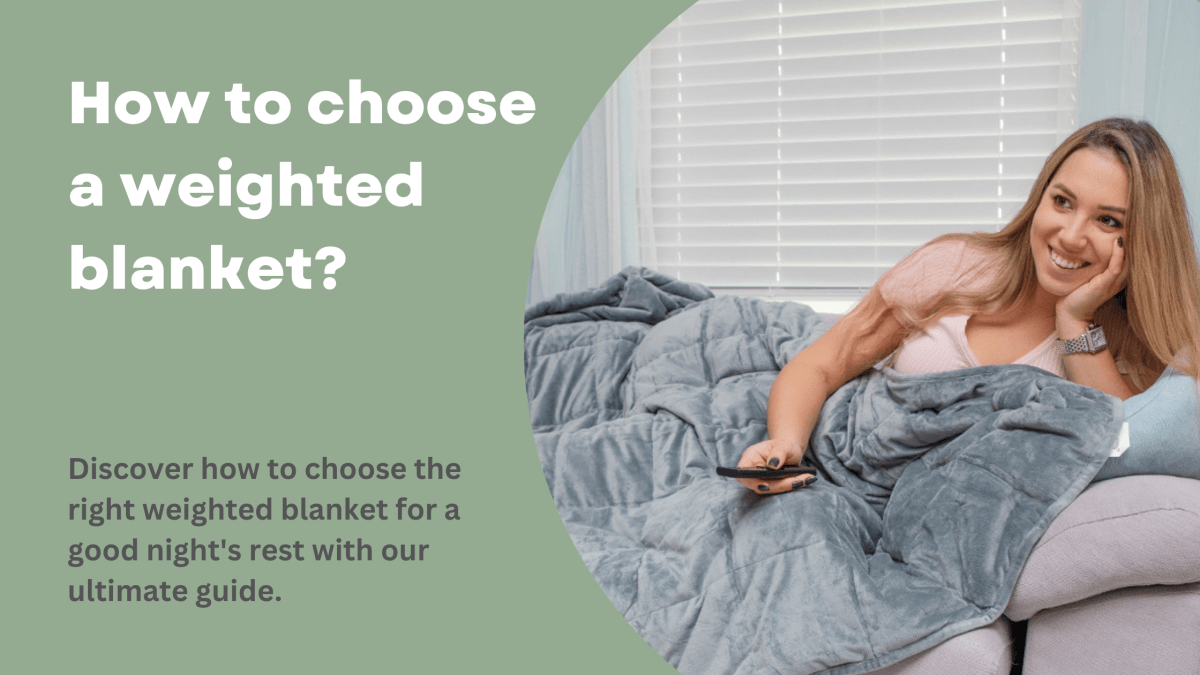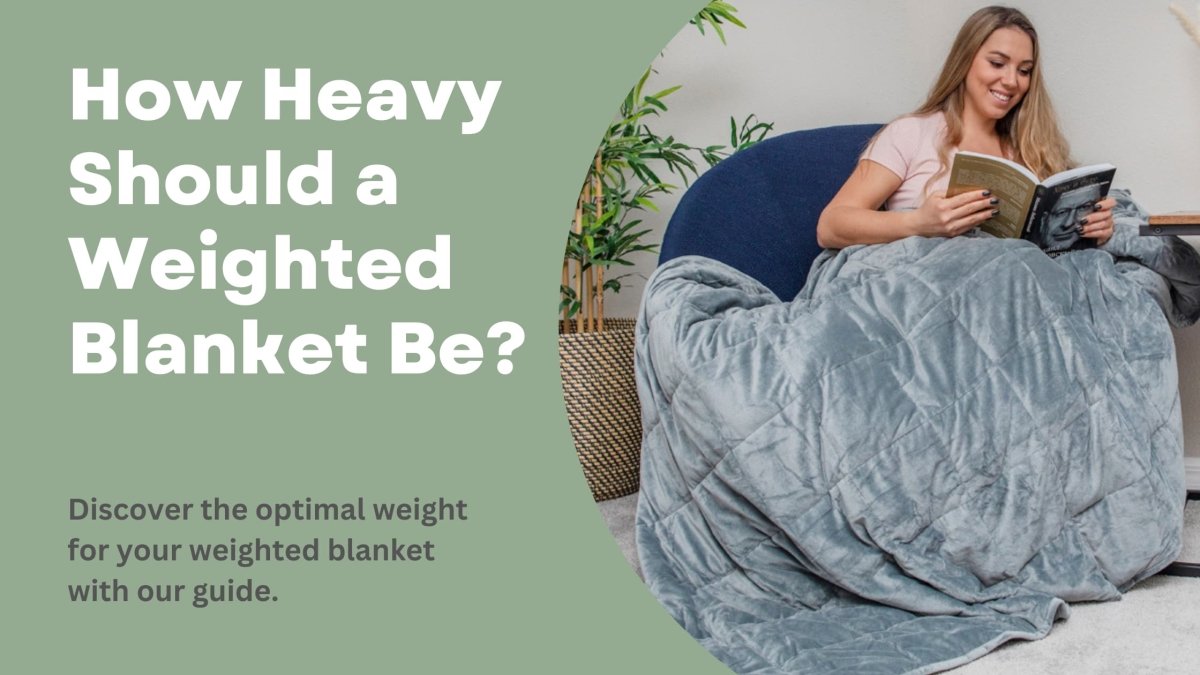Weighted Blankets vs. Traditional Blankets: When to Use Each
Weighted Blankets vs. Traditional Blankets: When to Use Each
Blankets play a significant role in our sleep comfort, and the right blanket can make all the difference in achieving a good night's sleep. With the increasing popularity of weighted blankets, like the highly recommended Sweet Zzz weighted blanket, many people are considering making the switch from traditional blankets. In this article, we will compare weighted blankets and traditional blankets, discussing their benefits, drawbacks, and situations where one might be more appropriate than the other.
Weighted Blankets
Pros:
- Improved Sleep Quality: Weighted blankets provide deep touch pressure stimulation, which has been shown to improve sleep quality by increasing the production of melatonin, the hormone responsible for regulating the sleep-wake cycle.
- Reduced Anxiety and Stress: The gentle pressure of a weighted blanket can stimulate the release of serotonin and dopamine, neurotransmitters that promote relaxation and well-being, helping to reduce anxiety and stress.
- Calming Effect for Sensory Processing Disorders: Weighted blankets can be particularly beneficial for individuals with sensory processing disorders, autism, or ADHD, as the deep touch pressure stimulation can help regulate the nervous system and promote a calming effect.
- Versatility: Weighted blankets come in various sizes, weights, and materials, making it easy to find one that suits your individual needs and preferences.
Cons:
- Cost: Weighted blankets tend to be more expensive than traditional blankets due to their specialized materials and construction.
- Weight: The additional weight of a weighted blanket can make it more challenging to move or adjust during sleep, potentially causing discomfort for some users.
- Care and Maintenance: Weighted blankets often require more care and maintenance than traditional blankets, including specialized washing instructions and storage considerations.
When to Use a Weighted Blanket:
- If you struggle with anxiety, stress, or insomnia
- If you have a sensory processing disorder, autism, or ADHD
- If you prefer a gentle, even pressure on your body while sleeping
Traditional Blankets
Pros:
- Lightweight: Traditional blankets are typically lighter than weighted blankets, making them easier to move and adjust during sleep.
- Cost-Effective: Traditional blankets are generally more affordable than weighted blankets, making them a budget-friendly option.
- Easier Maintenance: Traditional blankets usually have simpler care instructions and are easier to wash, dry, and store.
- Wide Variety: Traditional blankets come in a wide range of materials, designs, and sizes, offering a broad selection to suit individual tastes and preferences.
Cons:
- Lack of Deep Touch Pressure Stimulation: Traditional blankets do not provide the deep touch pressure stimulation offered by weighted blankets, which can be beneficial for sleep quality, anxiety reduction, and sensory regulation.
- Limited Therapeutic Benefits: Traditional blankets may not offer the same therapeutic benefits as weighted blankets for individuals with sleep disorders, anxiety, or sensory processing challenges.
When to Use a Traditional Blanket:
- If you prefer a lighter, more easily adjustable blanket
- If you have no specific sleep or anxiety concerns that would benefit from a weighted blanket
- If you are on a budget and looking for a cost-effective option
Conclusion
Both weighted and traditional blankets offer unique benefits and drawbacks, depending on individual needs and preferences. Weighted blankets, like the Sweet Zzz weighted blanket, can be a game-changer for those seeking improved sleep quality, anxiety reduction, or sensory regulation. On the other hand, traditional blankets can be a more cost-effective and lightweight option for those without specific sleep concerns. By considering your individual needs, preferences, and budget, you can determine which type of blanket is the best fit for you.




